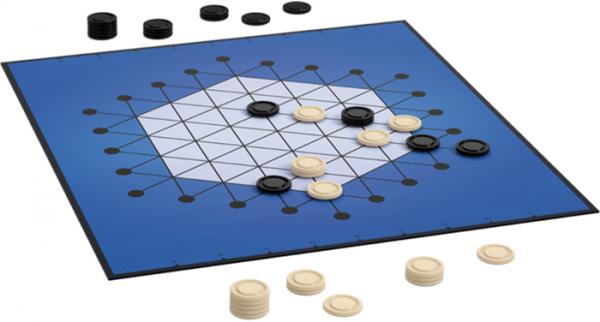
When you learn how to play a new strategy game, it often happens that you feel lost in the many possibilities. Don't let this discourage you. Give yourself a fair chance and after a few games you will notice that your play improves rapidly.
Below you'll find a few tips to get you started. We advise reading them after having played a first game.
-
The most important rule for beginners is this: a turn always starts by putting a piece on a dot! By executing your moves in the dictated 2 steps, you will come to recognize the possible movements of the pieces even sooner. (This is obligatory during tournaments, too).
-
There is no side of the board that you can consider as your side. Make use of the possibility to attack your opponent from all sides-and, of course, be conscious (and cautious!) of the fact that your opponent will do the same.
-
Playing GIPF starts with the notion that pieces in the play area are more dangerous and effective than pieces in reserve. Always try to keep as many pieces on the board as possible.
-
Use the possibility of forcing your opponent to capture his own pieces (of course without losing a piece yourself). That way you weaken his position in the play area, which often creates better possibilities for attacking his remaining pieces.
-
Keep in mind that taking pieces from the board implies that a number of occupied spots will no longer be occupied. This often causes new (and dangerous) openings.
-
Only at the ending stage of the game does it be- come important to keep a close eye on the opponent's reserve. You will notice that the difference between winning and losing often depends on having just one more piece in reserve than your opponent.

Remark:
An easy win is not really enjoyable, nor is losing all the time. When the difference between two players is so vast that it affects the joy of playing, make use of the possibility to adjust the number of pieces per player according to their strength. (See B. Starting the Game, point 2).
Continue Reading

